Jun 01
After American naval officer James Lawrence's death (on June 4, 1813) was reported to his friend and fellow officer Oliver Hazard Perry, he ordered a large blue battle ensign, stitched with the phrase "Dont Give Up The Ship," in bold white letters.
The Perry Flag was displayed on his flagship during a victorious engagement against the British on Lake Erie in September 1813. The original flag is displayed in the Naval Academy Museum and a replica is displayed in Memorial Hall at the United States Naval Academy in Annapolis, Maryland.
A replica is also on view at Perry's Victory and International Peace Memorial, on South Bass Island, Ohio.
Image by: Johnson, Fry & Co. after A. Chappel. NY. Hand-colored engraving. 1867. Independence Seaport Museum

Jun 01
"It is a clear truth that those who every day barter away other men's liberty will soon care little for their own."

Jun 02
"I've learned from experience that the greater part of our happiness or misery depends on our dispositions and not on our circumstances."

Jun 02
"In order to know virtue, we must first acquaint ourselves with vice."
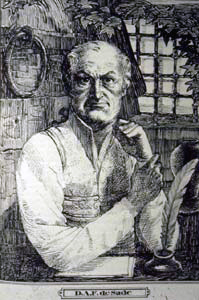
Jun 03
"I have always regretted that the last assault at Cold Harbor was ever made. ... No advantage whatever was gained to compensate for the heavy loss we sustained."

Jun 04
"If any person shall within the territory or jurisdiction of the United States begin or set on foot or provide or prepare the means for any military expedition or enterprise...against the territory or dominions of any foreign prince or state of whom the United States was at peace that person would be guilty of a misdemeanor."
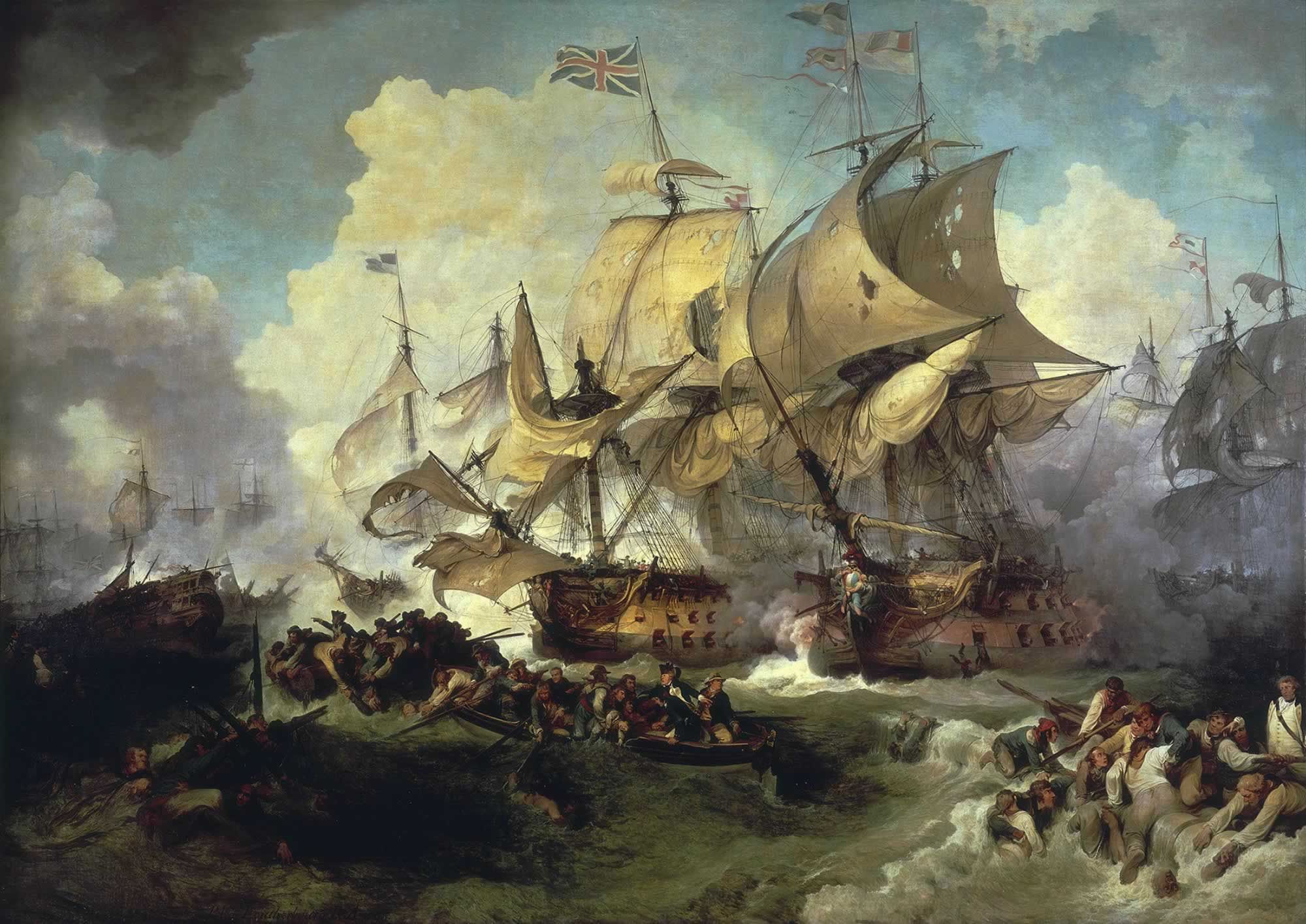
Jun 05
"And now," said Legree, "come here, you Tom. You see, I telled ye I didn't buy ye jest for the common work; I mean to promote ye, and make a driver of ye; and to-night ye may jest as well begin to get yer hand in. Now, ye jest take this yer gal and flog her; ye've seen enough on't to know how."
I beg Mas'r's pardon," said Tom; "hopes Mas'r won't set me at that. It's what I an't used to, -- never did, -- and can't do, no way possible."
"Ye'll larn a pretty smart chance of things ye never did know, before I've done with ye!" said Legree, taking up a cowhide, and striking Tom a heavy blow cross the cheek, and following up the infliction by a shower of blows.
"There!" he said, as he stopped to rest; "now, will ye tell me ye can't do it?"
"Yes, Mas'r," said Tom, putting up his hand, to wipe the blood, that trickled down his face. "I'm willin' to work, night and day, and work while there's life and breath in me; but this yer thing I can't feel it right to do; -- and, Mas'r, I never shall do it, -- never!"
Tom had a remarkably smooth, soft voice, and a habitually respectful manner, that had given Legree an idea that he would be cowardly, and easily subdued. When he spoke these last words, a thrill of amazement went through every one; the poor woman clasped her hands, and said, "O Lord!" and every one involuntarily looked at each other and drew in their breath, as if to prepare for the storm that was about to burst. Read more at http://www.syracusecityschools.com/tfiles/folder836/excerpt_from_uncle_toms_cabin.pdf.

Jun 06
"After a warm start to June, the month quickly turned stormy. A strong Nor’easter developed along the east coast on the 6th with rain mixed with snow in Quebec City and light snow observed over the highlands of New York and most of Northern New England. As this winter type storm moved into the Canadian Maritimes on the 7th, the storm dumped 6 to 12 inches of snow over most of Northern New England with reports of 2 foot drifts in Quebec City. Strong high pressure followed the storm from the 8th through the 10th with frost every morning and reports of trees blackened or scorched across most of New England. By the end of the month the weather became more typical of June with even a heat wave from the 22nd through the 24th.
"If June was bad enough, July started out no better. A strong Canadian cold front crossed New England killing corn, beans, cucumbers and squash and the first talk of famine started. However, by the middle of the month, thoughts of a famine were almost forgotten as the hardy grains such as wheat and rye along with potatoes were doing quite well."

Jun 07
"It was on the 1st of May in the year 1769, that I resigned my domestic happiness for a time, and left my family and peaceable habitation on the Yadkin river, in North Carolina, to wander through the wilderness of America, in quest of the country of Kentucky, in company with John Finley, John Stewart, Joseph Holden, James Monay, and William Cool.
"We proceeded successfully; and after a long and fatiguing journey, through a mountainous wilderness, in a westward direction, on the seventh day of June following we found ourselves on Red river, where John Finley had formerly been trading with the Indians, and, from the top of an eminence, saw with pleasure the beautiful level of Kentucky."
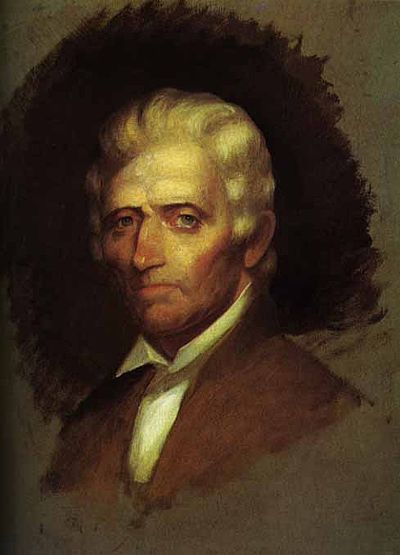
Jun 07
“As Mankind becomes more liberal, they will be more apt to allow that all those who conduct themselves as worthy members of the community are equally entitled to the protections of civil government. I hope ever to see America among the foremost nations of justice and liberality.”
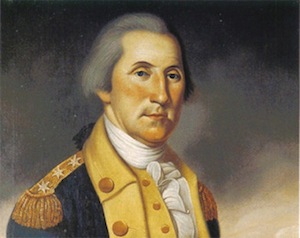
Jun 08
"A Bill of Rights is what the people are entitled to against every government, and what no just government should refuse, or rest on inference."

Jun 09
"People made fun of us as we walked, pulling our handcarts, but the weather was fine and the roads were excellent and although I was sick and we were very tired at night, still we thought it was a glorious way to go to Zion."
Image: Mormon missionaries in Liverpool, England, 1855. Edward Martin is on the right of the middle row.
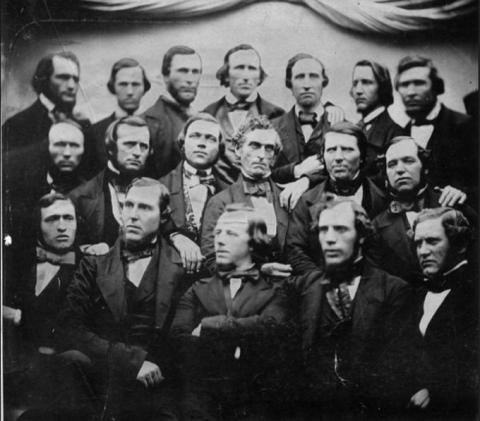
Jun 10
"There, I guess King George will be able to read that without his spectacles!"
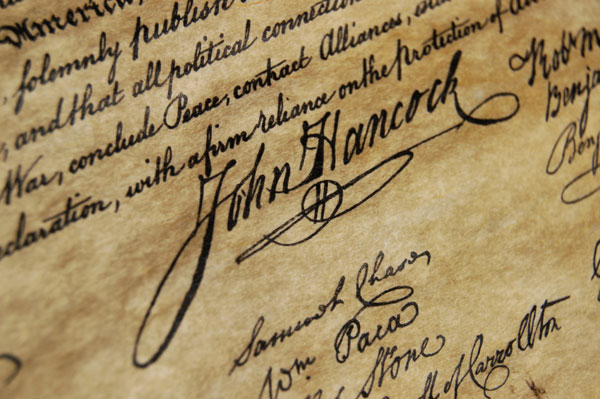
Jun 11
"Resolved, That these United Colonies are, and of right to be, free and independent States, that they are absolved from all allegiance to the British Crown, and that all political connection between them and the State of Great Britain is, and ought to be, totally dissolved. That it is expedient forthwith to take the most effectual measures for forming foreign Alliances. That a plan of confederation be prepared and transmitted to the respective Colonies for their consideration and approbation."

Jun 12
"To say 'I accept' in an age like our own is to say that you accept concentration-camps, rubber truncheons, Hitler, Stalin, bombs, aeroplanes, tinned food, machine guns, putsches, purges, slogans, Bedaux belts, gas-masks, submarines, spies, provocateurs, press-censorship, secret prisons, aspirins, Hollywood films and political murder."

Jun 13
"When the government violates the people's rights, insurrection is, for the people and for each portion of the people, the most sacred of the rights and the most indispensible of duties."
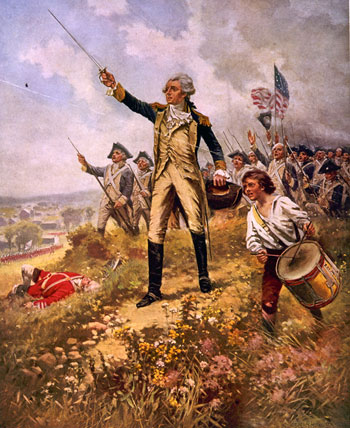
Jun 13
Vanilla Frozen Custard
Makes about 1 quartThe ingredients in modern frozen custard recipes haven't changed much since Thomas Jefferson brought a recipe back to Monticello from France. At the time, vanilla was still little known in America. Provided by his personal French chef and written down by Jefferson, his version called for two bottles of "good" cream, six egg yolks, a half-pound of sugar and a "stick" of vanilla. As its name suggests, this recipe involves readying a custard mixture. The flavor is richer, the color creamier, and the texture smoother than that of regular vanilla ice cream.

Jun 14
"I am not afraid of an army of lions led by a sheep; I am afraid of an army of sheep led by a lion."
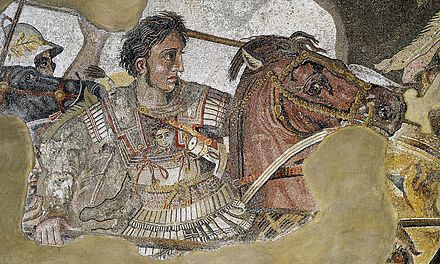
Jun 15
"A man has cause for regret only when he sows and no one reaps. I am not disposed to complain that I have planted and others have gathered the fruits. Life should not be estimated exclusively by the standard of dollars and cents."
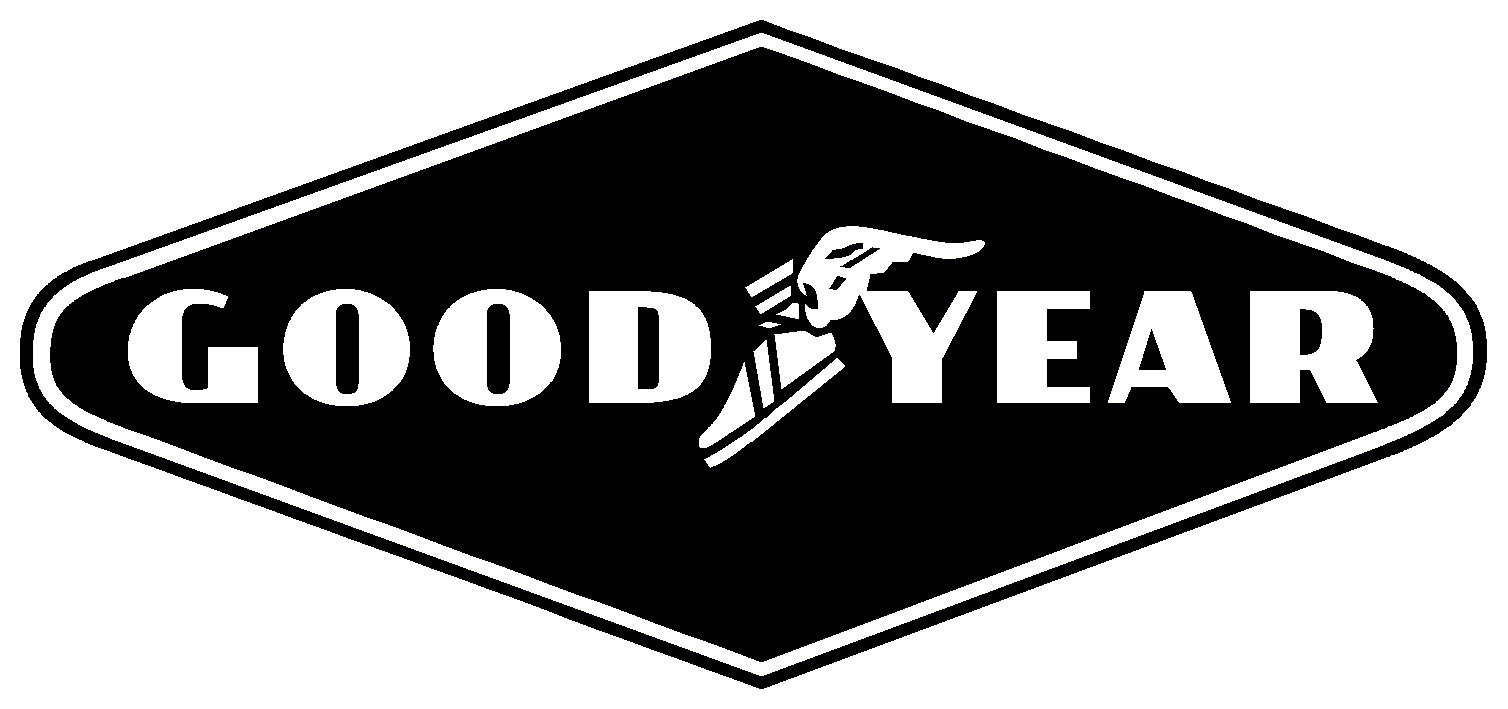
Jun 15
"The Judicial power of the United States shall not be construed to extend to any suit in law or equity, commenced or prosecuted against one of the United States by Citizens of another State, or by Citizens or Subjects of any Foreign State."

Jun 16
"If particular care and attention is not paid to the ladies, we are determined to foment a rebellion, and will not hold ourselves bound by any laws in which we have no voice or representation."

Jun 17
Like a character from a Greek heroic poem, Kamehameha had the equivalent of a price on his head from the day he was born. Alapainui, the ruling chief of Hawaii island, ordered the child who was about to be born to Kekuiapoiwa , Kamehameha's mother (Alapainui's niece), to be executed at birth. This was after a priest warned Alapainui the child would grow up to be a mighty warrior who one day would overthrow him.
Kamehameha's mother had her infant son wrapped in a kapa shroud and carried by a runner to a place called Awini in the mountains of Kohala where Kamehameha would be hidden away for five years under the protection of a woman relative named Kahaopulani. For some reason, perhaps guilt, Alapainui eventually welcomed the young boy Kamehameha to live in his household where Kamehameha began his training in the chiefly skills of leadership and fighting.
Learn more at http://www.huffingtonpost.com/denby-fawcett/5-things-to-know-about-ka_b_5486501.html.
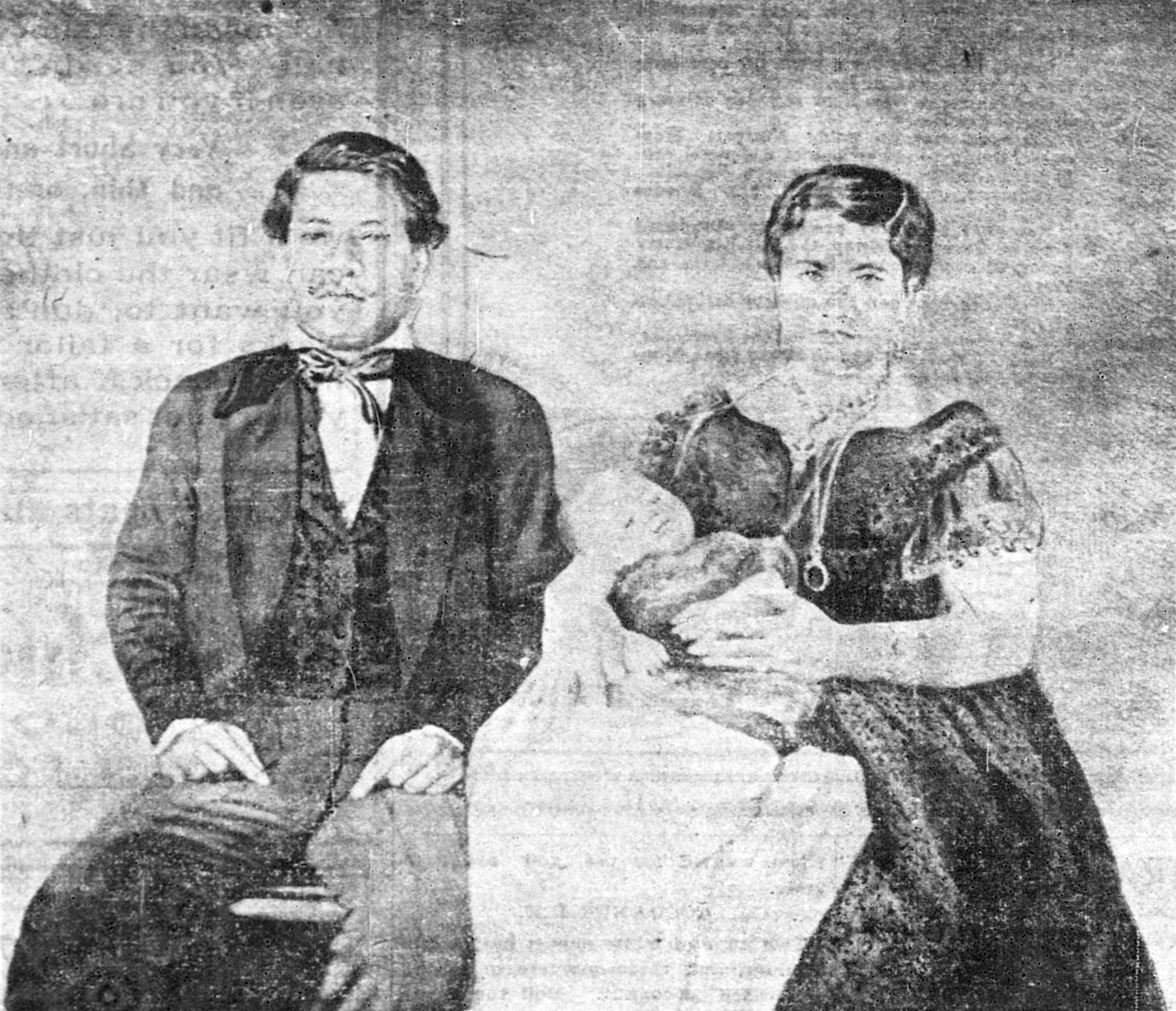
Jun 18
Although the burning of Washington, D.C. transpired long after George Washington’s death, the first president played an important role. Dolley Madison chose to rescue his portrait from the White House just before the building went up in flames. August 24, 2014 marks the 200th anniversary of the burning of Washington and Dolley Madison's heroic effort to save the celebrated painting.
The Burning of Washington—one of the most note-worthy episodes of the War of 1812—took place 200 years ago, on August 24, 1814. After capturing the capital city, the British famously burned many of its most important buildings, including the White House.
Although the Burning of Washington transpired long after George Washington’s death, the first president played an important part; Dolley Madison chose to rescue his portrait from the White House just before the building went up in flames. The surviving painting, known as Gilbert Stuart’s Lansdowne Portrait, is one of the most iconic representations of Washington known today.
Rescuing the painting was no simple feat. The eight-foot tall portrait was bolted to the wall of the dining room, making it difficult to move or transport. After the American forces announced their retreat from their position at Bladensburg, Maryland, Charles Carroll rushed to the White House to hurry the first lady to safety. Learn more at http://www.mountvernon.org/george-washington/artwork/dolley-madison-comes-to-the-rescue/

Jun 19
“The wine is excellent, I got some of it, which his Excellency was so good upon hearing I was sick, to send me three bottles.”

Jun 20
"The founding fathers made an appropriate choice when they selected the bald eagle as the emblem of the nation. The fierce beauty and proud independence of this great bird aptly symbolizes the strength and freedom of America."

Jun 21
"Trying to do business without advertising is like winking at a pretty girl through a pair of green goggles. You may know what you are doing, but no one else does."

Jun 22
Blunt wire with an international steel regulation of ISR 9002 is generally used to make straight pins. To create the wire, a bar of steel is heated to a temperature of 2,200°F (1,200°C), rolled into a long thin rod, coiled, and then allowed to cool. The heating causes an oxide coating to form on the wire. To remove this coating, the wire is immersed in an acid bath, then rinsed in water.
The cleaned wire is inserted into a drawing block that pulls the wire through a die whose opening is smaller in diameter than that of the wire. Thus the wire is reduced in diameter and increased in length. The drawing is undertaken several times until the desired diameter is obtained. As it comes off of the last stage of drawing, the steel is coiled. The dies are coated with grease or soap to protect the wire as it passes through. This lubrication process also removes defects and gives the wire a smooth finish.
Nickel is a silvery chemical element extracted from the earth's crust. It is combined with sulfate to create a solution for coating the pins to keep them from rusting. Learn more at http://www.madehow.com/Volume-7/Straight-Pin.html.
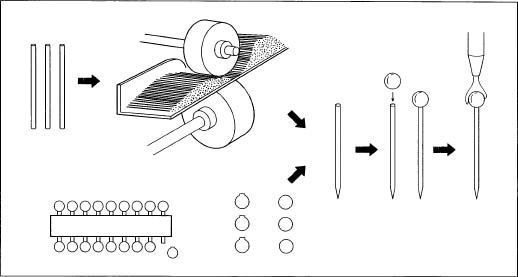
Jun 23
"The Woman’s Advocate would not clamor for the political rights of woman, but instead would center its efforts on her right to live and use all means within her reach and capacity to make a living. We are more than ever convinced of the necessity of an advocate of the rights of our toiling sisters – the right to use their hands and heads in any and every capacity that they may have the will and the ability to act in. This we believe covers the whole ground of those rights which women should demand."

Jun 24
"This country and this people seem to have been made for each other, and it appears as if it was the design of Providence, that an inheritance so proper and convenient for a band of brethren, united to each other by the strongest ties, should never be split into a number of unsocial, jealous, and alien sovereignties."

Jun 25
" ... that if the acts before specified should stand, these conclusions would flow from them; that the general government may place any act they think proper on the list of crimes and punish it themselves whether enumerated or not enumerated by the constitution as cognizable by them: that they may transfer its cognizance to the President, or any other person, who may himself be the accuser, counsel, judge and jury, whose suspicions may be the evidence, his order the sentence, his officer the executioner, and his breast the sole record of the transaction …"
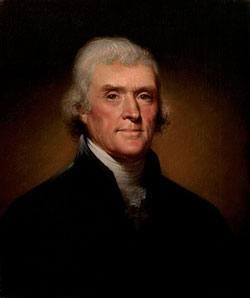
Jun 26
"Farming looks mighty easy when your plow is a pencil and you're a thousand miles from the corn field."

Jun 27
"Let the Bell be cast by the best Workmen & examined carefully before it is Shipped with the following words well shaped in large letters round in vizt. By order of the Assembly of the Province of Pensylvania for the State house in the City of Philada 1752 and Underneath Proclaim Liberty and ye shall hallow the fiftieth year, and proclaim liberty throughout all the Land unto all the Inhabitants thereof."
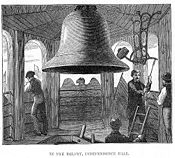
Jun 28
"If we continually bear in mind the royal law of doing to others as we would be done by, we shall never think of bereaving our fellow creatures of that valuable blessing liberty, nor endure to grow rich by their bondage. To live in ease and plenty by the toil of those whom violence and cruelty have put in our power is neither consistent with Christianity nor common justice."

Jun 29
"Four score and seven years ago our fathers brought forth on this continent, a new nation, conceived in Liberty, and dedicated to the proposition that all men are created equal.
Now we are engaged in a great civil war, testing whether that nation, or any nation so conceived and so dedicated, can long endure. We are met on a great battle-field of that war. We have come to dedicate a portion of that field, as a final resting place for those who here gave their lives that that nation might live. It is altogether fitting and proper that we should do this.
But, in a larger sense, we can not dedicate -- we can not consecrate -- we can not hallow -- this ground. The brave men, living and dead, who struggled here, have consecrated it, far above our poor power to add or detract. The world will little note, nor long remember what we say here, but it can never forget what they did here. It is for us the living, rather, to be dedicated here to the unfinished work which they who fought here have thus far so nobly advanced. It is rather for us to be here dedicated to the great task remaining before us -- that from these honored dead we take increased devotion to that cause for which they gave the last full measure of devotion -- that we here highly resolve that these dead shall not have died in vain -- that this nation, under God, shall have a new birth of freedom -- and that government of the people, by the people, for the people, shall not perish from the earth."

Jun 30
"He was more like a fantastic sprite than a human being. Had he lived a century or two earlier he would have been treated as one possessed of a devil. He could walk the rope as a bird cleaves to air."





